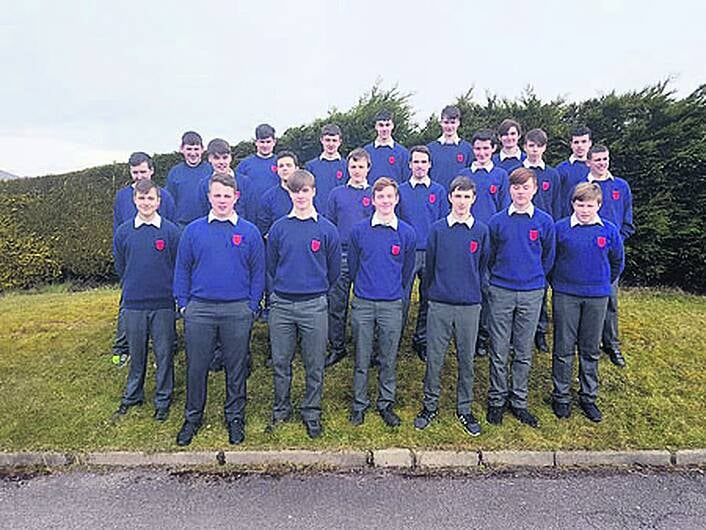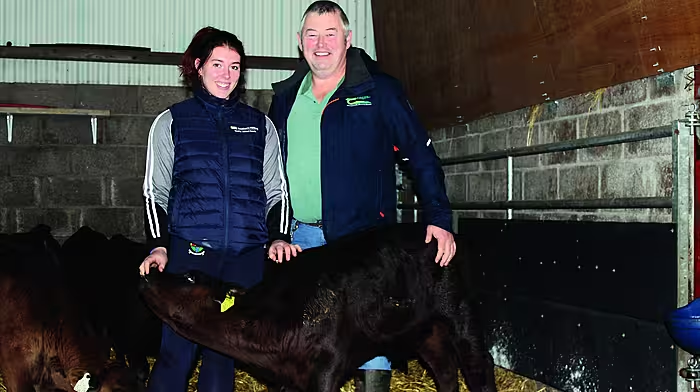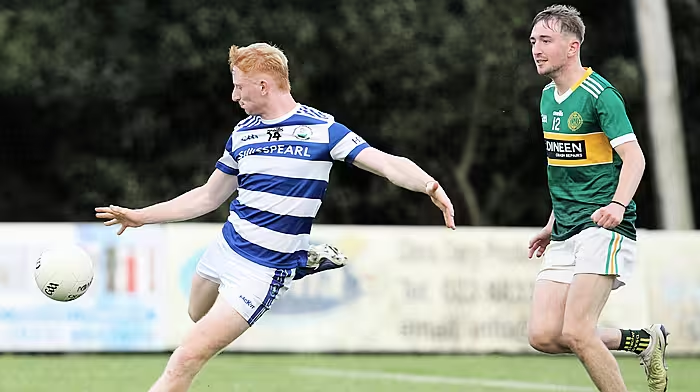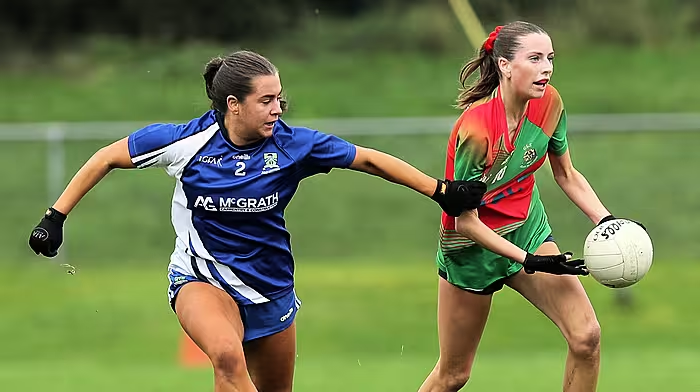A group of Beara students is pioneering a slurry neutralisation system as part of a ground-breaking campaign to create and promote safety on the peninsula.
A GROUP of Beara students is pioneering a slurry neutralisation system as part of a ground-breaking campaign to create and promote safety on the peninsula.
And, if they save just one life in their area, the group of 22 TY students at Scoil Phobail Bhéara, Castletownbere, says it will have been worthwhile.
It’s all part of their project, Alert Today, Alive Tomorrow, for this year’s Young Social Innovator (YSI) competition.
Having pitched their idea at YSI Den in Cork last month, they received funding to produce a Safety Management App devised by student Sean O’Dwyer, with a local app developer.
They are looking into securing a patent for this as well as their slurry neutralisation system having also secured business mentoring from Cork Junior Chamber.
The students explain: ‘The app could be adapted for individual settings, e.g. cycling club, farm, business, school or even the family home. It will allow a safety co- coordinator or person with responsibility for safety in a facility to input a personalised list of what safety checks must be completed, risk assessments completed, when, set reminders (e.g. fire alarm must be serviced).
It would also permit co-ordinator and/or employees to record dates, times, issues to be raised, actions taken, safety training available or completed by individual staff, as well as reminding employees of upskilling, renewal of course qualifications, etc.’
Meanwhile, the slurry neutralisation system, devised by student Matthew O’Leary, is designed as a sprinkler system installed above the slurry and on the bottom of slatted house panels in sheds to dissolve the slurry using a scientific formula similar to bread soda.
‘This would neutralise the slurry gases and remove the risk to life of same. It could operate on a manual system or a technology based circuit board with automated timed function,’ they said.
The group will have a float in the Castletownbere St Patrick’s Day parade, while also organising a safety day for 10 local primary schools in association with Cork County Council.
Outlining their reason for choosing this topic, they said: ‘Our school is situated in the rural Beara peninsula where the primary economic activities are farming, fishing, marine-related industries and small scale construction. We therefore, focused on these workplaces as well as looking at people’s attitudes to safety in the home and road safety for car users, pedestrians and cyclists.
‘Unfortunately, a number of group members had first-hand experience of various accidents or who witnessed inaction and felt the frustration of seeing a preventable accident happen. We were determined to make a difference.
‘Our ultimate aim is to change the attitudes to safety and hence behaviour, reduce or prevent serious injury and loss of life and help to develop a safety culture in society.’
YSI guide at the school, Marie Murphy, said the all male group had some experience of accidents and the topic was something they felt very passionate about.
Their extensive research (through interview and surveys) found among other things that: 72% more aware of potential hazards round the home and more likely to deal with hazard promptly; that safety in the home was very much perceived the responsibility of males; however 43% of males surveyed viewed safety as a nuisance, extra source of stress and way over the top.
Worringly, surveyed farmers in all age profiles viewed safety as their least priority followed by fishermen while drivers and nurses viewed it as one of the most important aspects of their work.
As part of their research, the students conducted three surveys, distributed to 900 people in total on: Attitudes to safety; Perceptions of Hazards and Safety Behaviour Analysis.
The students said: ‘We spoke with people who had serious accidents and those who care for same. We interviewed people with responsibility for safety with HSA, farm advisory and various companies including international construction firm Sisk, BIM and Irish Cement. We also met with Health and Safety academics who have done much research, analysing and written much on the topic.’
They also consulted Caroline Casey, the Cork County Council Safety Officer; HSA, RSA, Water Safety Ireland, Construction Federation of Ireland, BIM, IFA, ICMSA and Macra na Feirme, as well as Teagasc and the Engineering Departments at CIT and UCC.
‘We have also consulted with local walking groups, Beara AC, local cycling club, farmers, fisherman and builders as well as County Cork Fire Service, Ambulance Service, Cliff and Mountain Rescue and the RNLI.’
Following on from their research, they’ve actioned a considerable amount including creating an education pack for pre-school, primary, post-primary and adults on USB.
They concluded that, to change attitudes and develop a safety culture, we have to move away ‘from culture of punishments, consequences and afraid of getting caught to a culture where people view hazards risks as unsafe.
‘We feel that, with Alert Today Alive Tomorrow, we have made a positive difference and impact on the topic of safety. We feel that we really got people thinking about their own attitude to safety and challenged them then to look at their safety behaviour. The surveys produced some very interesting, challenging and worrying results. We feel though that if surveyed again there might be a change in attitude, behaviour and perception of risks. ‘









